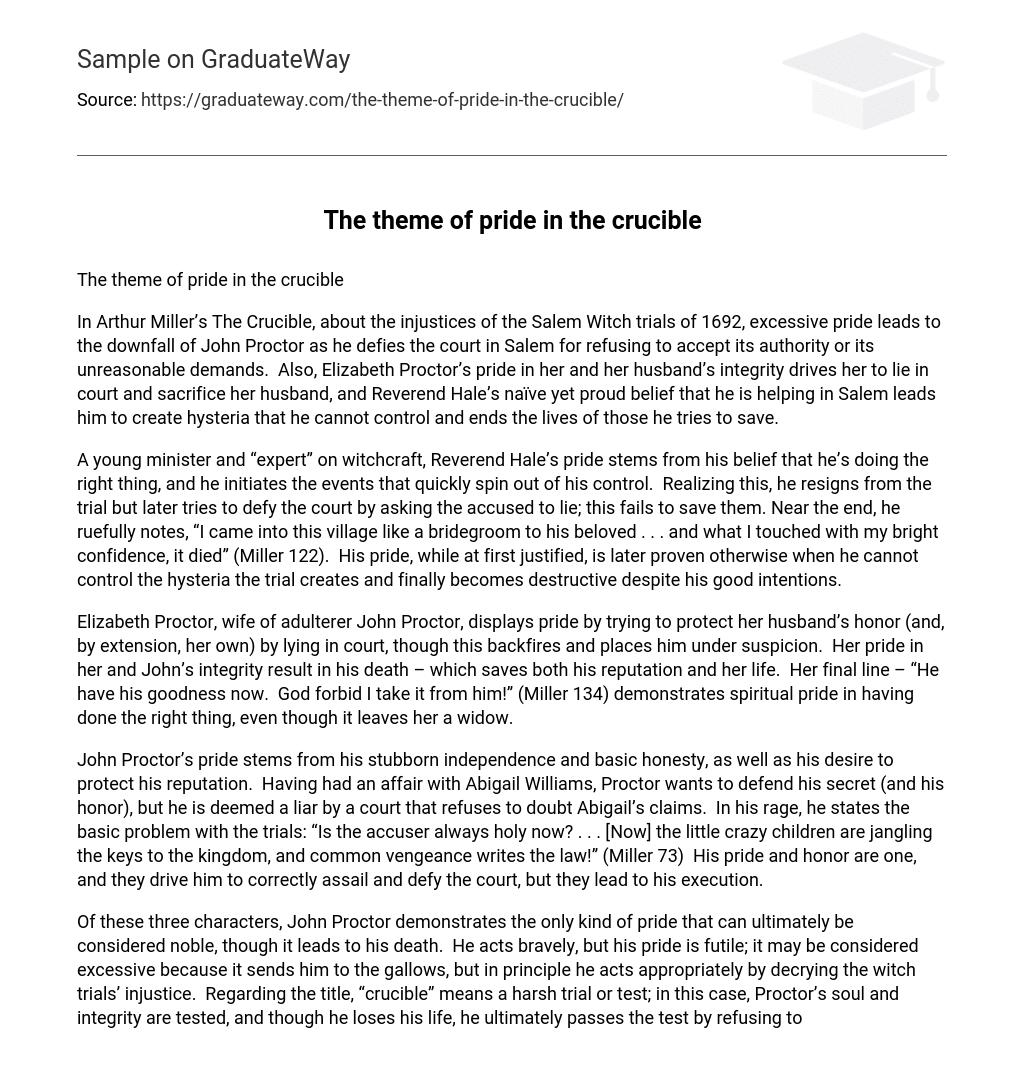In Arthur Miller’s The Crucible, about the injustices of the Salem Witch trials of 1692, excessive pride leads to the downfall of John Proctor as he defies the court in Salem for refusing to accept its authority or its unreasonable demands. Also, Elizabeth Proctor’s pride in her and her husband’s integrity drives her to lie in court and sacrifice her husband, and Reverend Hale’s naïve yet proud belief that he is helping in Salem leads him to create hysteria that he cannot control and ends the lives of those he tries to save.
A young minister and “expert” on witchcraft, Reverend Hale’s pride stems from his belief that he’s doing the right thing, and he initiates the events that quickly spin out of his control. Realizing this, he resigns from the trial but later tries to defy the court by asking the accused to lie; this fails to save them. Near the end, he ruefully notes, “I came into this village like a bridegroom to his beloved . . . and what I touched with my bright confidence, it died” (Miller 122). His pride, while at first justified, is later proven otherwise when he cannot control the hysteria the trial creates and finally becomes destructive despite his good intentions.
Elizabeth Proctor, wife of adulterer John Proctor, displays pride by trying to protect her husband’s honor (and, by extension, her own) by lying in court, though this backfires and places him under suspicion. Her pride in her and John’s integrity result in his death – which saves both his reputation and her life. Her final line – “He have his goodness now. God forbid I take it from him!” (Miller 134) demonstrates spiritual pride in having done the right thing, even though it leaves her a widow.
John Proctor’s pride stems from his stubborn independence and basic honesty, as well as his desire to protect his reputation. Having had an affair with Abigail Williams, Proctor wants to defend his secret (and his honor), but he is deemed a liar by a court that refuses to doubt Abigail’s claims. In his rage, he states the basic problem with the trials: “Is the accuser always holy now? . . . [Now] the little crazy children are jangling the keys to the kingdom, and common vengeance writes the law!” (Miller 73) His pride and honor are one, and they drive him to correctly assail and defy the court, but they lead to his execution.
Of these three characters, John Proctor demonstrates the only kind of pride that can ultimately be considered noble, though it leads to his death. He acts bravely, but his pride is futile; it may be considered excessive because it sends him to the gallows, but in principle he acts appropriately by decrying the witch trials’ injustice. Regarding the title, “crucible” means a harsh trial or test; in this case, Proctor’s soul and integrity are tested, and though he loses his life, he ultimately passes the test by refusing to cave in the face of injustice.
Miller, Arthur. The Crucible. New York: Penguin, 1995.





